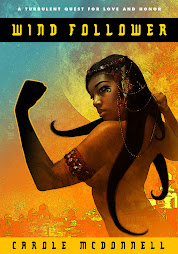The Surprising Imagination of C S Lewis -- An Introduction
Jerry Root and Mark Neal
Abingdon Press
www.abingdonpress.com
Have you ever had one of those moments when the perfect book falls into your hands at the perfect time? There I was writing a new story and in a bit of quandary about what direction my imagination in the story would take.
Knowledge of Lewis writings would make this book an even better read but it is not required because the editors/writers have written a book that is an “introduction” to Lewis’ philosophy of the imagination and to his writings.
It seems --according to the editors-- Lewis has written about the senses and types of imagination. The three senses of imagination are as follows: the first is wish-fulfillment fantasy which is self-referential and narcissistic and imagines the dreamer as the hero. The second sense is invention in which the creative power of the human mind crafts images and depictions to explore, grasp, and understand the world as it is. The third sense is the imagination that helps us to understand what is beyond our understanding and experience horizons that are beyond our experiences.
The types of imagination include: the baptized imagination which is the imagination regenerated which is an awakening and longing for the numinous, and a waking to the grief of the world. The penetrating imagination is imagination that helps in getting deeper knowledge of a kind of reality. There is also the material imagination, the generous imagination, the primary imagination, the transforming imagination, the controlled imagination, the satisfied imagination, the awakened imagination, the absorbing imagination, the shared imagination, the compelled imagination, and the realizing imagination. I think those are all of them. The editors use different works by Lewis to show how these different kinds of imagination are at work in literature, art, spirit, theology, creativity, self-knowledge, and reality.
C S Lewis is a Christian writer who, along with other Christian writers such as George MacDonald and J R R Tolkein-- has influenced much of modern fantasy. I suspect many readers will not want to read this book because they fear they might be overwhelmed with silly Christian nonsense. But trust me on this, unless an atheist writer has a major grudge against an old evangelical aunt, he/she should find this book very enlightening. And certainly those who want to depict the religious mind properly, without spite or injustice, would do well to read a book like this.
I really want to do this book justice because it is that good! Maybe I just love having my heart opened to how the creative heart opens. The last book that had such an effect on me was Mastermind: How to think like Sherlock Holmes by Maria Konnikova and that was a book that used Arthur Conan Doyle to show how memory, neuroscience, and literature works. This book brought back my joyful love of literary criticism and reminded me again why my favorite genre to read and to study is review/criticism. Truly, reading this book caused me to be Surprised by Joy.











No comments:
Post a Comment